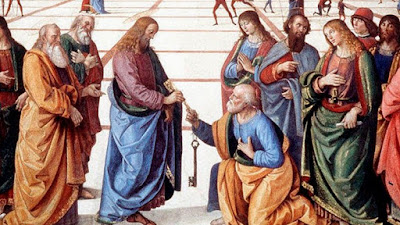Homily for the 23rd Sunday in Ordinary Time, September 6, 2020, Year A

Fr. Charles Irvin Diocese of Lansing ( Click here for Sunday’s readings ) Asking the right question is always critical if we want arrive at good answers to what it is we seek or to the problems we face. With that in mind I want to ask us today: How much of your life and mine is governed by “we” and how much is it governed by “me?” That question is fundamental in our lives. Do I arrive at answers and base my decisions all by myself or with others? Do I live my life alone or with others? We need to see that all of life comes from God. We are made in God’s image and likeness. That being so we need to pay attention to the fundamental truth that God is a community of Persons, Father, Son, and Holy Spirit, each with their own characteristics but at the same time in mutual interdependency. Being excessively independent is not Godly. At times, we see ourselves and make our choices as autonomous individuals, accountable to no one else, all by ourselves. But isn’t it true that t...





